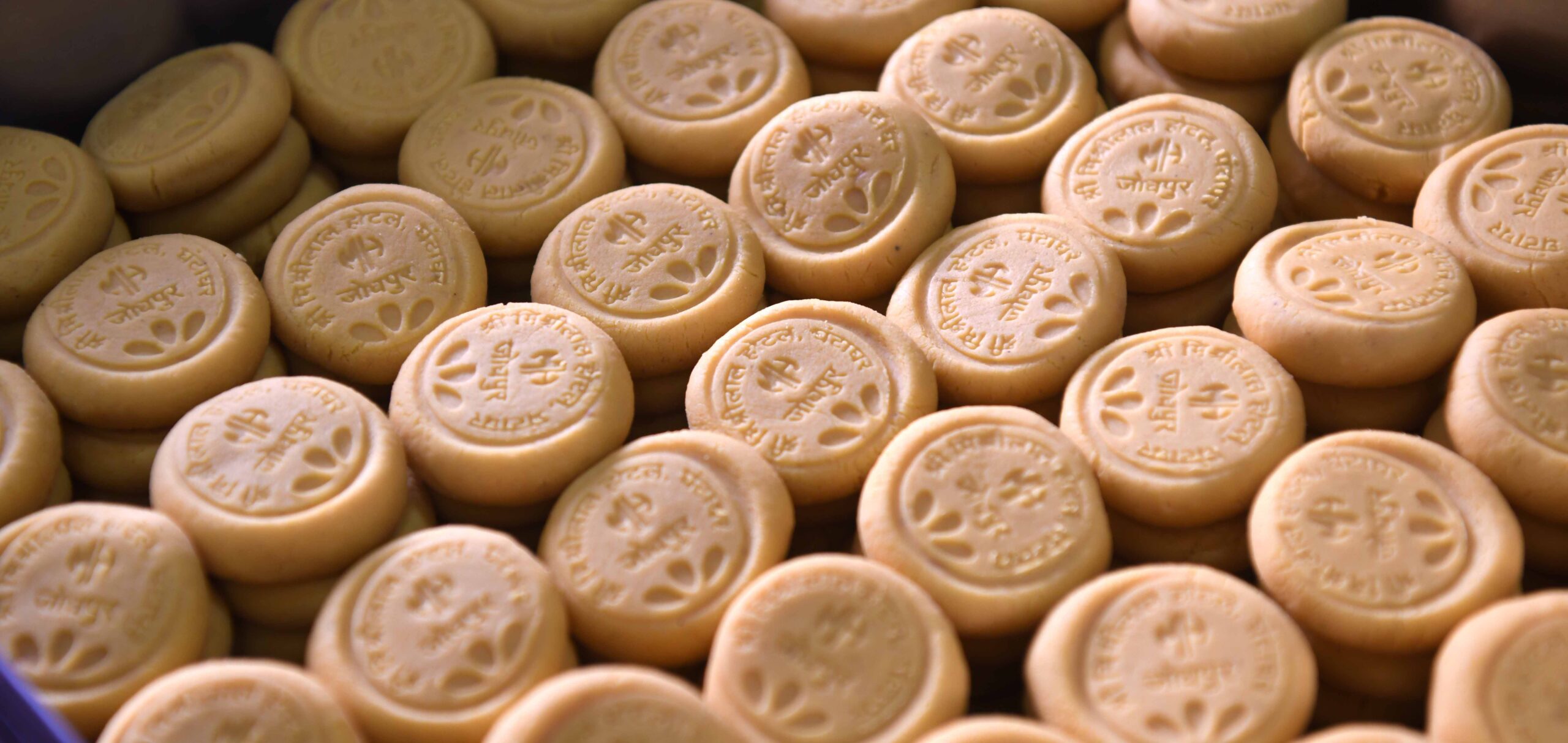
It is the year 1853. The princely state of Jodhpur is abuzz with arrangements for Maharaja Takhat Singh’s daughter Kumari Chand Kanwar’s wedding with Maharaja Sawai Ram Singh II of Jaipur. Every little detail has been minutely ministered to with one crucial and unavoidable exception: the tough Nirjala Ekadashi fast (where believers give up even water) happened to occur in the midst of the celebrations. Legend has it that in order to prevent a shortfall of mithai for the fasting baraatis, the royal household not only shored up preparations in its own kitchens, but also presciently decided to purchase all the mithai the people of Jodhpur could spare. Rare was a household, it turned out, that didn’t have some amount of kalakand, jalebi or immarti to contribute, to save their ruler from potential embarrassment! Anecdotal or otherwise, this amusing account amply illustrates Marwar’s long-standing dalliance with sweet some-things.

Jodhpur’s giant sweet tooth is matched in equal measure by its visible fondness for fiery savouries. The city is peppered with popular haunts that locals, and visitors-in-the-know, regularly and unfailingly flock to for a fix of their preferred samosa, pyaaz kachori, or mirchi bada. Jodhpur also has an unparalleled affinity for crunchy treats, as deduced from the number of shops, in the Old City and elsewhere. These shops specialize in a multitude of namkeens, from the simple barik sev to bara maasi, or from the quintessential masala boondi to to the gathiya ki namkeen. These multipurpose ingredients double as both sev and pappad and are variously combined with tomato or buttermilk to create delicious quick-fix dishes. Favourites like sevs, roasted dals and alu bhujia, also find their way into roti bites, or are generously sprinkled over kadhis, gatta sabzis and dals.


Unsurprisingly, generational brands take pride in preparing their stock daily, retaining not just quality and freshness but also a loyal customer base. You will find most of these traditional eateries and shops concentrated around the Clock Tower market, formerly Sadar Bazaar, in the Old City of Jodhpur. Ghantaghar, as it is also referred to, is where one of Jodhpur’s most popular beverages, makhaniya lassi, has its origins. Made with kewda-flavoured and sweetened hung curd, it is finished with a dollop of fresh butter and served in a clay kasora. “Our popularity results from having taken pains to ensure quality, and to preserve the original flavours of our products,” shares Varun Arora, a fourth-generation owner of the nearly century-old establishment.

A short distance away, crowds gather for a hearty breakfast before making their way to a day of hard labour. Keeping some of them satiated are massive samosas and onion or mogar (split moong) filled kachoris. Yet, others wolf down mirchi bhaji (stuffed and batter-fried large green chillies) sandwiched between slices of bread. Also known as mirchi bada, this combination is widely-eaten across Rajasthan, sometimes snipped up and served with curried channas. Have no doubt that hours of browsing and shopping around the atmospheric alleys in the area will help work up an appetite in no time at all. When it does, look out for Kapda Bazaar’s 80-year-old shop renowned for desi ghee fried kachoris. Should you be craving sweets in the vicinity of Sarafa Bazaar, be sure to ask around for its famed mawa (khoya) and boondi laddoos. Locals also swear by the gujiya, kalakand, and gulab jamuns of Pungal Pada Road, located a stone’s throw away.

No introduction to Jodhpur’s mouth watering delicacies is complete without a mention of chuttiya ki chakki. This is a barfi-like sweet made with besan, gur, desi ghee, and hours of patience, the best version of which is said to be had at a 70-year-old shop near Mandore Gardens. Located 16 km to the north of the city, we are told the chakki is worth every bit of the trudge there. Mandore was the former seat of Marwar royals, where, presently, ruins of fortifications house the eponymous gardens, several well-maintained royal cenotaphs, temples, and a water body. Regardless of what your preferred foodie trail will be, we suggest you end it on an energizing note, with a freshly rolled digestion-aiding and mouth-freshening meetha paan.

Where To Eat What
-
Lassi, Rabdi, Peda – Shri MishriLal Hotel
-
Pyaaz Kachori, Mogar Kachori, Mirchi Bhaji – Shahi Samosa
-
Desi Ghee Kachori – Narayan Mishthan Bhandar
-
Mawa Kachori, Mawa Ladoo, Gathia ka Namkeen – Moolji Ki Hotel
-
Gulab Jamun, Gujiya, Kalakand – Chatur Bhuj
-
Namkeens – Chandra Vilas, Prem Vilas
-
Kaju Katli – Tilawat Sweets
-
Chuttiya Ki Chakki – Swadeshi Sweet Home
-
Meetha Paan – Bhamashah Paan Bhandar





